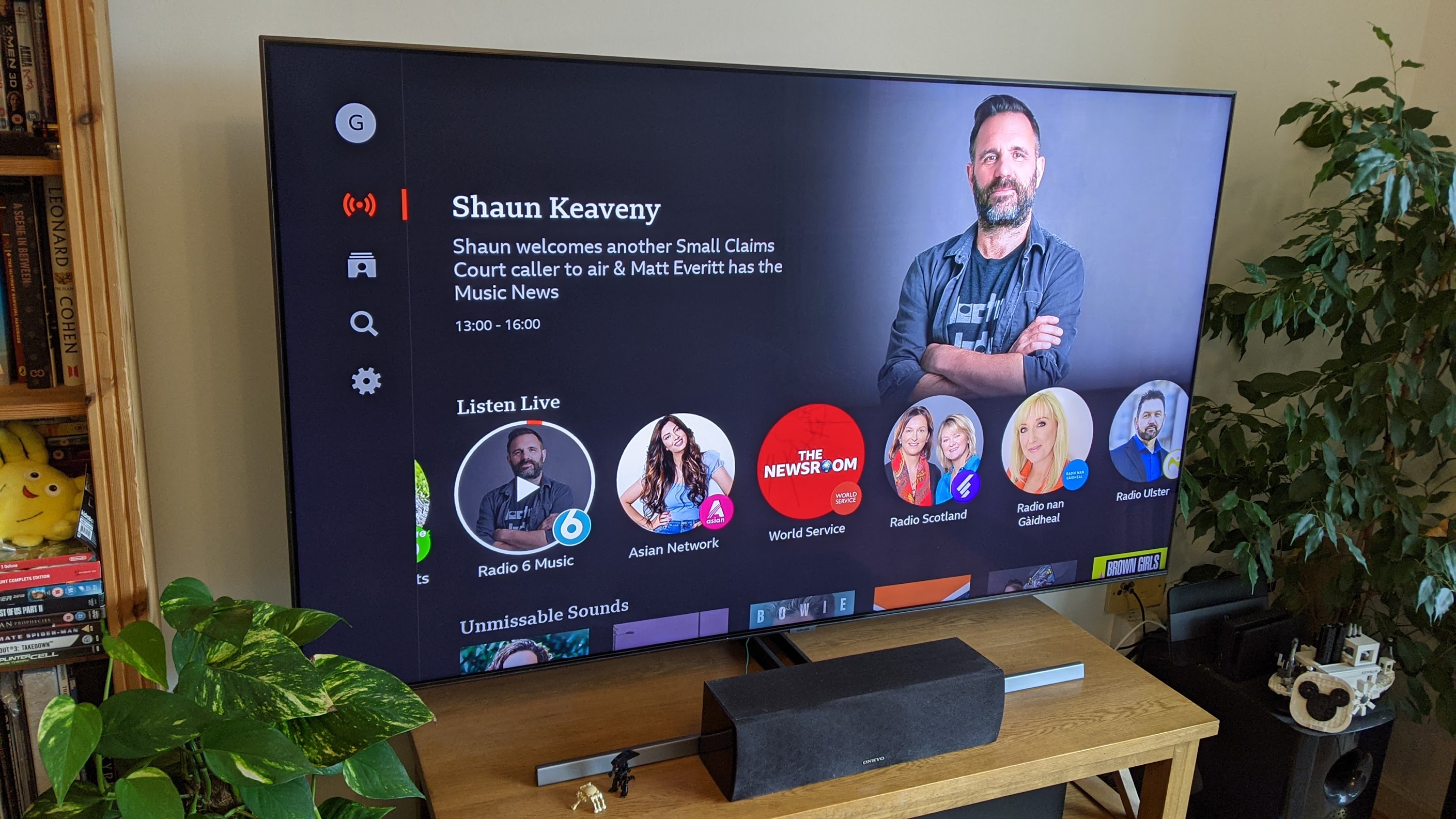Delayed fibre rollout means BBC licence fee 'must stay' for now, MPs say
Select committee says there is no workable alternative to BBC licence fee

Sign up for breaking news, reviews, opinion, top tech deals, and more.
You are now subscribed
Your newsletter sign-up was successful
MPs have said government suggestions that the TV licence fee could be abolished from 2027 are impossible due to delays to the UK’s rollout of full fibre broadband.
The future funding model of the BBC has been a continued source of debate over the past few years, with many feeling that that changing media consumption habits mean the licencing model is outdated.
A voluntary subscription-based model has been suggested as an alternative funding source, removing the threat of a criminal conviction for avoidance and allowing market forces to take charge.
- These are the best business SIM-only deals around today
- And the best business broadband deals
- Here are the best business mobile phone deals
BBC licence fee subscription
However, this could lead to funding cuts and undermine the BBC’s public service obligations - especially with regards to universality.
A report from the Culture Select Committee acknowledged that an alternative funding model needed to be found but said the government had yet to come up with a workable proposal.
The government has reneged on its pledge to connect every home in Britain to full fibre by 2025 and is now targeting 85% coverage by the same date. The committee said this lack of coverage, coupled with an absence of appropriate digital skills, could lead to 1.8 million people being unable to access public service broadcasting (PSB).
“It’s clear that the BBC TV licence fee has a limited shelf life in a digital media landscape,” said Julian Knight, chair of the committee. “However, the Government has missed the boat to reform it. Instead of coming up with a workable alternative, it has sealed its own fate through a failure to develop a broadband infrastructure that would allow serious consideration of other means to fund the BBC.”
Sign up to the TechRadar Pro newsletter to get all the top news, opinion, features and guidance your business needs to succeed!
The report has called for legislation that would safeguard the ‘prominence’ of PSBs and allow them to compete more effectively with streaming platforms that are becoming increasingly influential. For example, the BBC, ITV, Channel 4 and Channel 5 are given prime spots on Electronic Programming Guides (EPGs) on Sky and Virgin Media’s TV platforms, but there is no similar provision in the online world.
MPs have said that if no alternative method could be found, then the licence fee should be protected and that the government should help combat evasion. It said that ongoing uncertainty could have contributed to higher rates of non-payment that has lowered the BBC’s funding.
“The Government is effectively allowing the BBC to haemorrhage funds through non-payment of the licence fee as a result of continued speculation over decriminalisation of licence fee evasion, a situation it must bring to an end,” added White.
“To enable PSBs to compete in a digital world, Ministers must renew broadcasting laws that are nearly 20 years out of date. It’s a question of prominence – too often public service broadcasters lose out on dominant platforms with content that’s hard to find or isn’t branded.”
While most acknowledge that the BBC’s funding model must be updated, the issue has a political dimension. Some Tory MPs that want the licence fee abolished disagree with the tone of its news coverage and the promotion of social issues that they regard to be “wokery”.
However the licence fee helps fund niche and minority services and provides a wide range of television, radio and online services that would not necessarily be provided by other broadcasters.
The BBC has also allowed the UK to remain a leader in the global broadcasting industry, creates huge numbers of jobs and contributes significantly to the country’s creative sector. Supporters argue these economic benefits and the associated soft power at a global level are prized in a post-Brexit Britain.
- Here are the best broadband deals around today
Steve McCaskill is TechRadar Pro's resident mobile industry expert, covering all aspects of the UK and global news, from operators to service providers and everything in between. He is a former editor of Silicon UK and journalist with over a decade's experience in the technology industry, writing about technology, in particular, telecoms, mobile and sports tech, sports, video games and media.